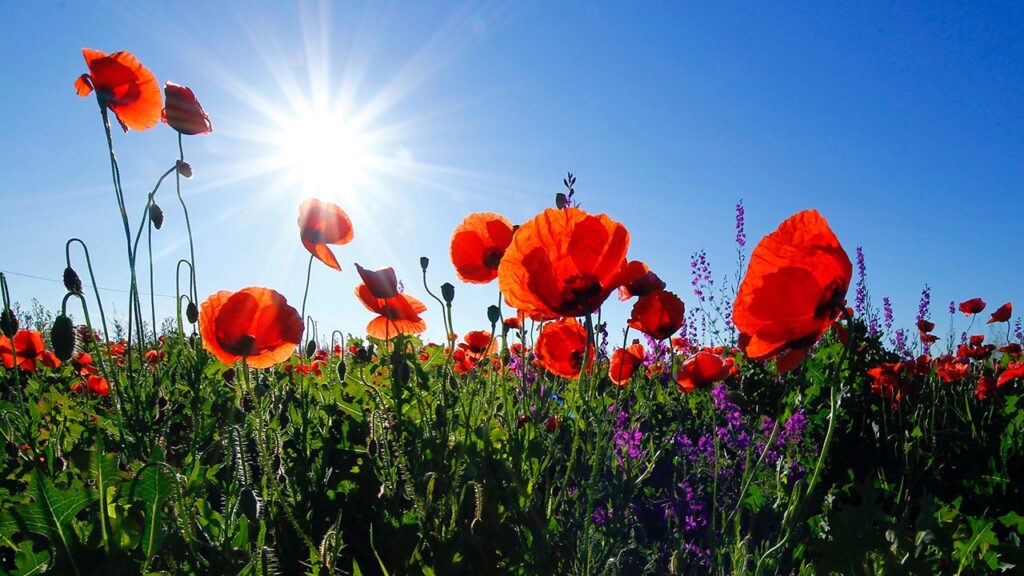by John Bagnasco
At last! May is here and gardening is in full swing.

While weeding alone could take up all your time, here are a few ideas of chores that will produce benefits down the road.
- Plant the hot, new summer annuals: Alyssum, Amaranthus, Celosia, Dahlia, Gloriosa Daisy, Lobelia, Marigold, Nierembergia, Petunia, Phlox, Portulaca, Salvia, Sunflowers, Verbena, Vinca and Zinnia
- Time to plant summer vegetables: Beans, Chayote, Eggplant, Melons, New Zealand Spinach, Peppers, Pumpkins, Squash, Sunflowers, and Tomatoes. Grow delicacies like French ‘Charentais’ melon, ‘Sun Sugar’ tomato, ‘Rosa Bianca’ eggplant or triplesweet ‘Honey Select’ sweet corn.
- Capture children’s imagination with Sunzillas! These giant sunflowers beanstalk their way to 14' – 16’. Very few other seeds catch a child's attention quicker than these golden orbs that seem to register daily growth. Huge heads of plump seeds are a bonus for snacks or an instant birdfeeder. Available from Renee’s Garden Seeds.
- Fertilize Camellias and Azaleas when they have finished blooming with Cottonseed Meal. Apply 3 inches of mulch around Camellias and Azaleas to reduce summer moisture stress, but keep mulch off stem and trunk of plant.
- If needed, divide and re-plant Cymbidium Orchids just after blooming. Transplant those that have out-grown their containers no later than June in order to ensure the next flowering cycle. Keep them in semi-shade now through mid-summer.
- Spray Florel on Olive trees and Liquidambar when in bloom to prevent fruit formation. Halting formation of olives basically eliminates driveway and patio staining from fruit drop.
- Harpin (under the tradename Axiom) is one of a class of proteins produced in nature by certain bacterial plant pathogens. It elicits a complex natural defense mechanism in plants, analogous to a broad spectrum immune response in animals. While most pesticides act directly on the target pest, Harpin, by contrast, elicits a protective response in the plant that makes it resistant to a wide range of fungal, bacterial, and viral diseases.
- Check timers on lawns. Be sure they are set for morning hours and every third day to conserve water.
